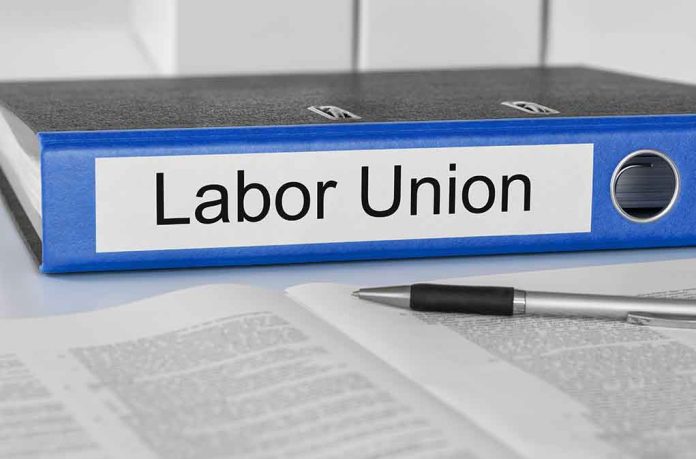
Trader Joe’s faces a potential union victory in New York’s Lower East Side as the NLRB pushes for mandatory bargaining amid allegations of unfair labor practices.
At a Glance
- NLRB’s general counsel is pushing for Trader Joe’s to enter mandatory bargaining with Trader Joe’s United
- Workers at the Lower East Side store narrowly lost their union election earlier this year
- Allegations include threats and denigrating comments aimed at pro-union employees
- Trader Joe’s is challenging the constitutionality of the NLRB
- Case reflects broader struggles over labor rights in large American corporations
Union Push at Trader Joe’s Intensifies
The battle for unionization at Trader Joe’s has reached a critical juncture in New York’s Lower East Side. Despite narrowly losing their election earlier this year, workers at this location may soon find themselves with union representation, thanks to intervention from the National Labor Relations Board (NLRB). The agency’s general counsel is advocating for Trader Joe’s to enter into mandatory bargaining with Trader Joe’s United, citing allegations of unfair labor practices.
This development comes in the wake of a new NLRB framework established last year, which allows for the waiver of re-elections in cases where substantiated unfair labor practices are found. The situation in New York is not isolated; it reflects a broader trend of intensifying labor struggles within major American corporations.
Trader Joe’s Challenges NLRB’s Authority
In response to the union-busting allegations, Trader Joe’s has taken an aggressive stance by challenging the very constitutionality of the National Labor Relations Board. This move could have far-reaching implications for labor rights in the United States.
“This isn’t just an attack to bust Trader Joe’s United, I think this is an attempt by right-wing billionaires and Morgan Lewis and Trader Joe’s and Elon Musk to destroy the American labor movement,” Seth Goldstein, an attorney for the union Trader Joe’s United, said in an interview with the Reformer. “American labor should wake up.”
The grocery chain’s argument poses a significant threat to the NLRB, an institution created as part of the New Deal to protect workers’ rights. With the case potentially headed to the U.S. Supreme Court, which currently has a conservative supermajority, the outcome could reshape the landscape of labor relations in America.
Allegations of Labor Law Violations
The NLRB’s Manhattan office has filed a complaint alleging that Trader Joe’s managers and supervisors violated labor laws in the lead-up to last year’s union election at the downtown location. These allegations include requiring employees to attend one-on-one meetings aimed at dissuading them from supporting the union, banning union literature in the break room, and removing any pro-union materials they found.
Seth Goldstein, an attorney for the union, said the managers’ conduct amounted to “scorched-earth union busting.” “I think it’s really fitting that this battle is being waged in [what’s now the] Essex Crossing [development], which is the heart of where 20th-century labor started with the garment workers,” he said. “And you’re seeing this new generation of workers arising who have stood up and said, ‘You know, we’re going to also have decent working conditions [and] we’re not going to let the plutocrats tell us what to do.'”
Workers have reported serious issues at the store, including raw sewage seeping from the ceiling onto food, highlighting the need for improved working conditions and safety measures.
Broader Implications for Labor Rights
The Trader Joe’s case is part of a larger trend of unionization efforts across various industries. Similar movements have been observed at companies like Starbucks, Amazon, and Apple. These efforts reflect growing concerns among workers about wages, benefits, and working conditions in the face of rising living costs.
“[Trader Joe’s] is pulling back the veil and showing us their true colors — they’re not a progressive company. They’re not worker-friendly. They’re making it really clear that they don’t care about our rights as workers,” said Maeg Yosef, a veteran employee who is the spokeswoman for the union.
As this legal battle unfolds, it will likely have significant implications for the future of labor relations in the United States. The outcome could either strengthen workers’ rights to unionize or potentially weaken the very institutions designed to protect those rights.










